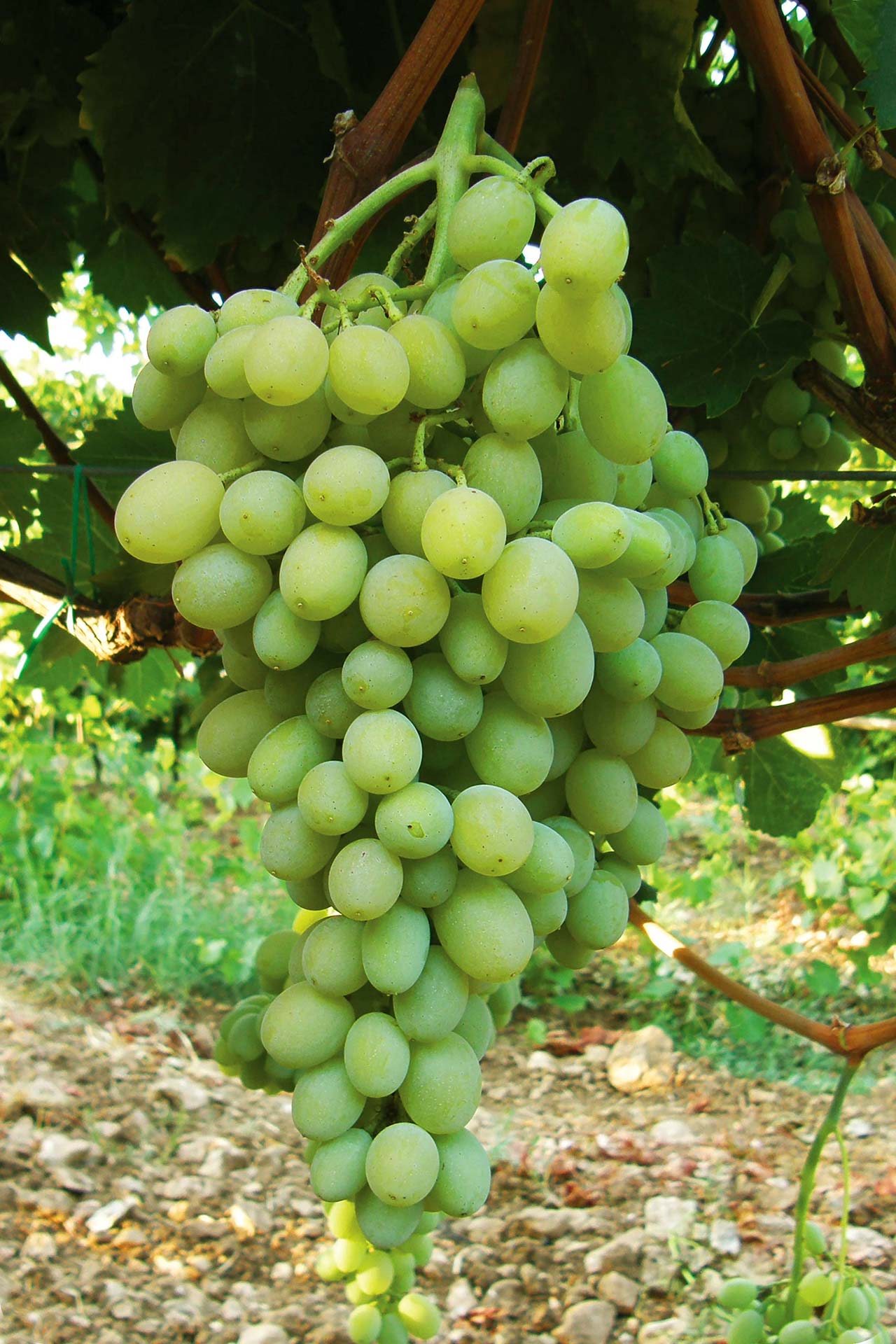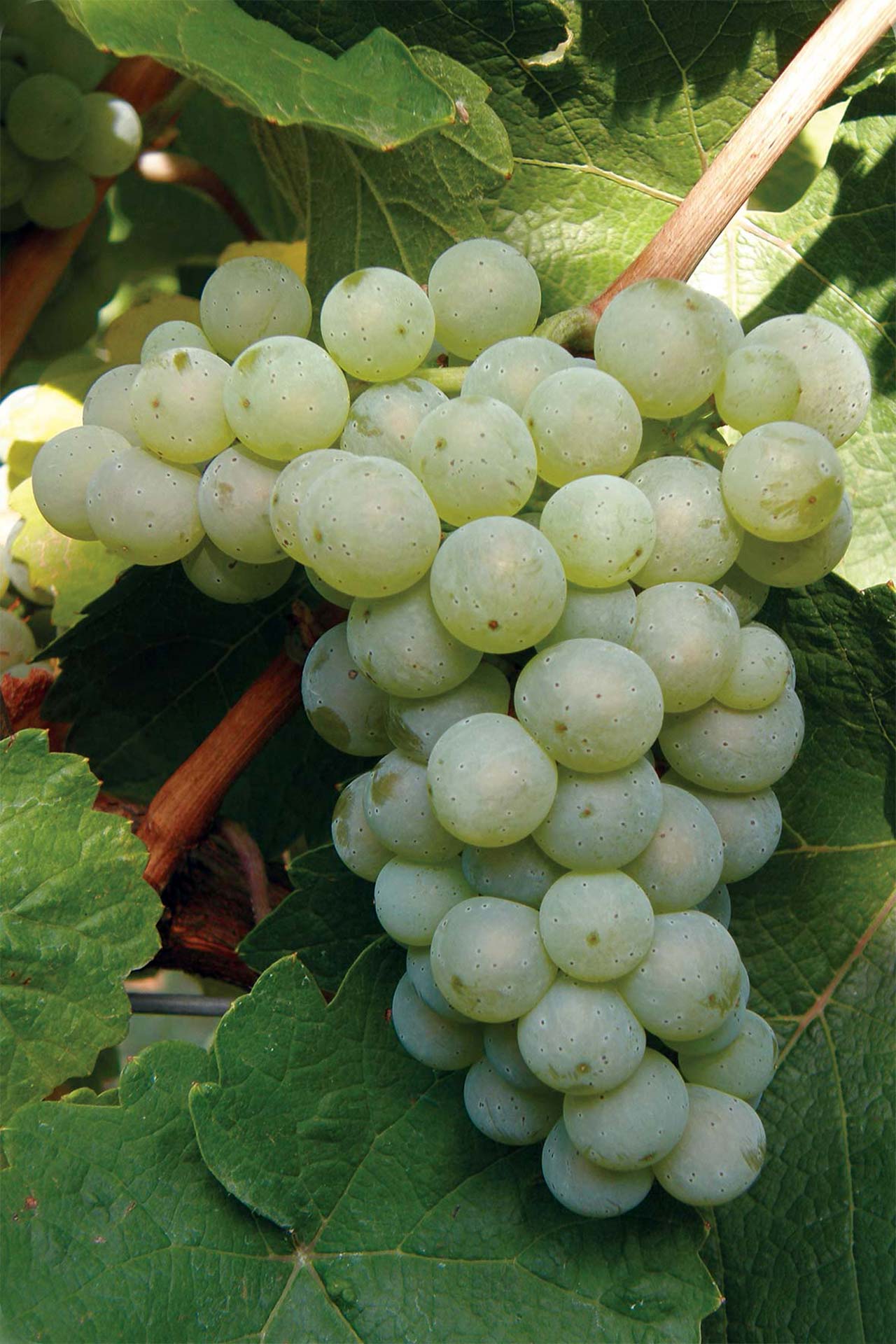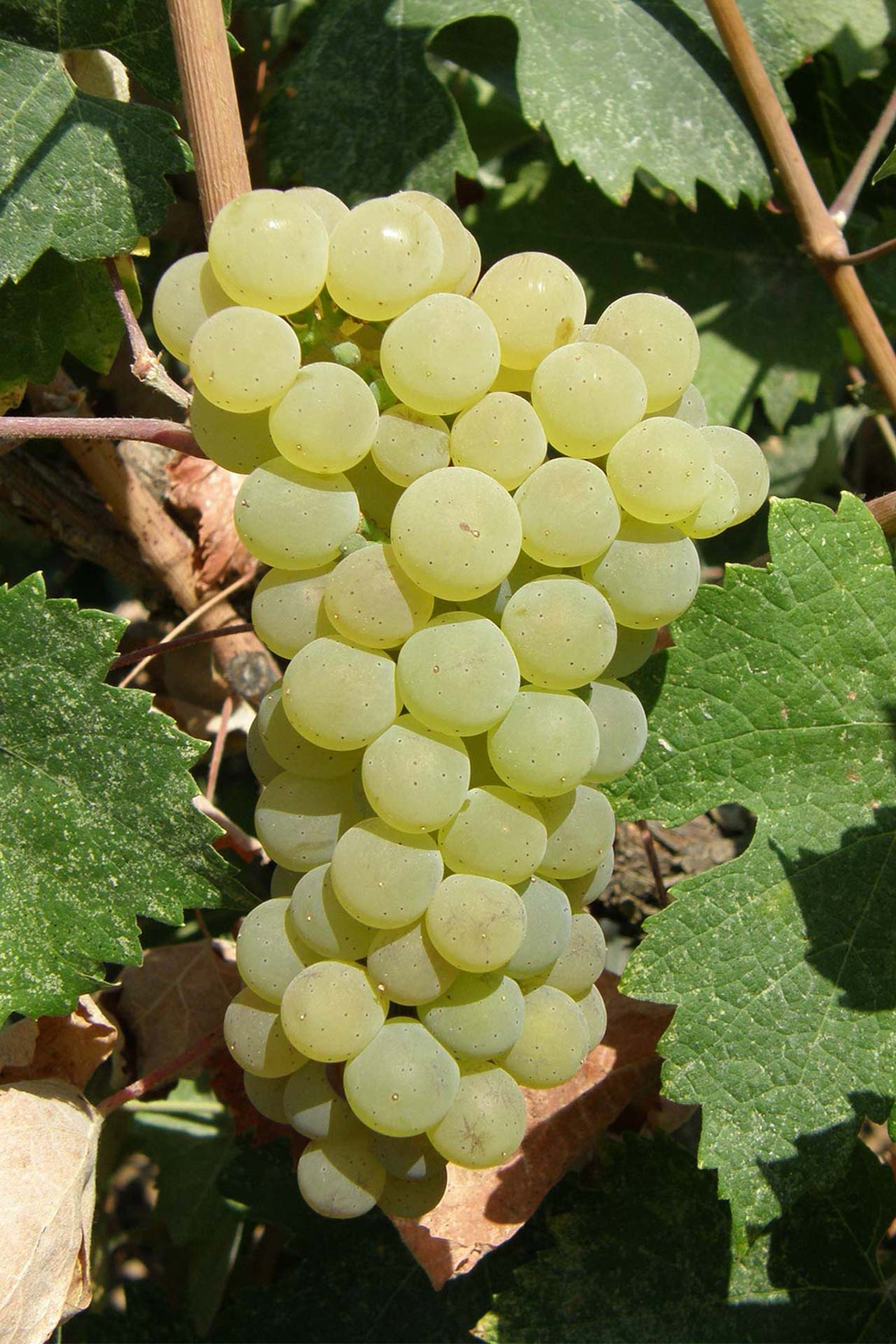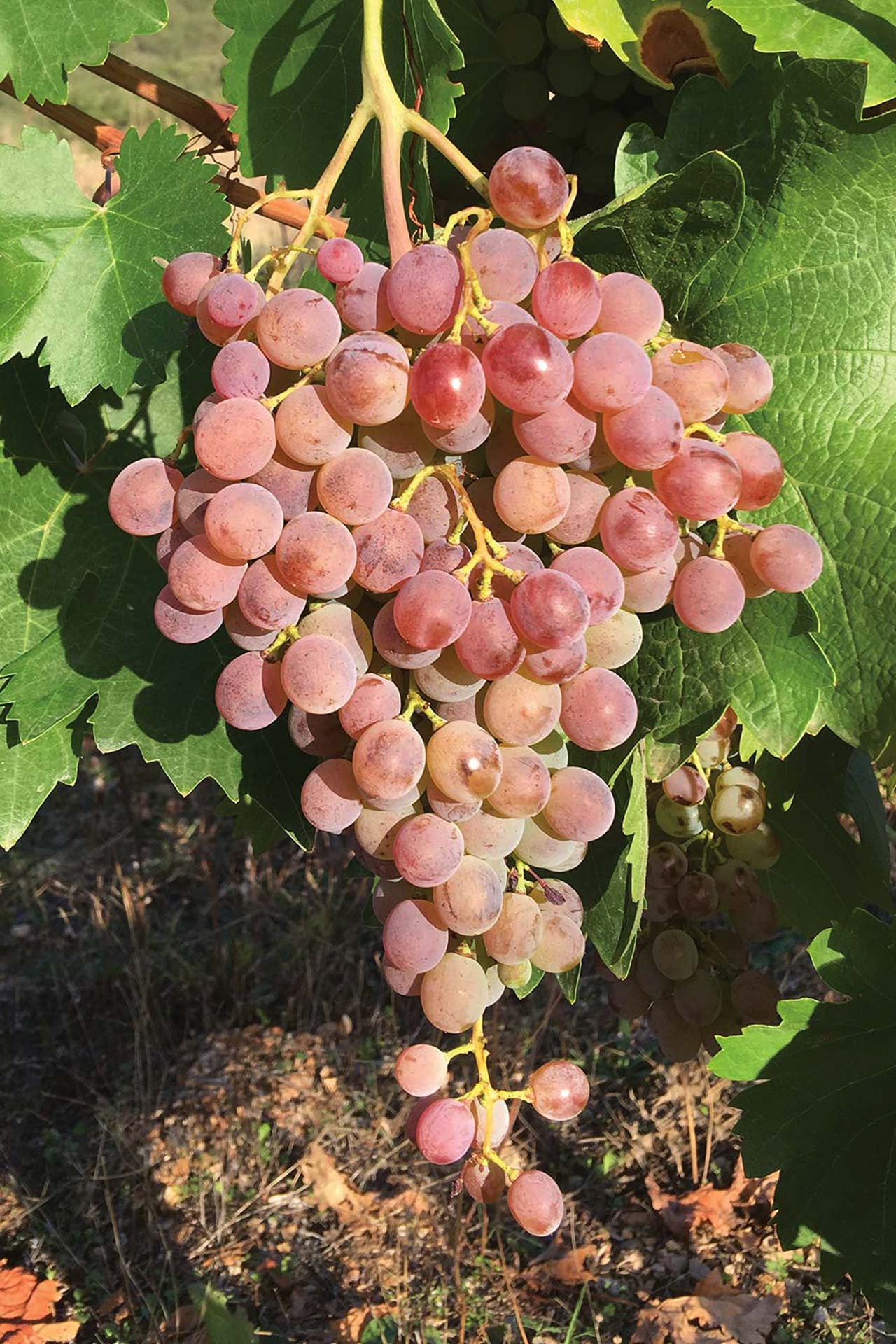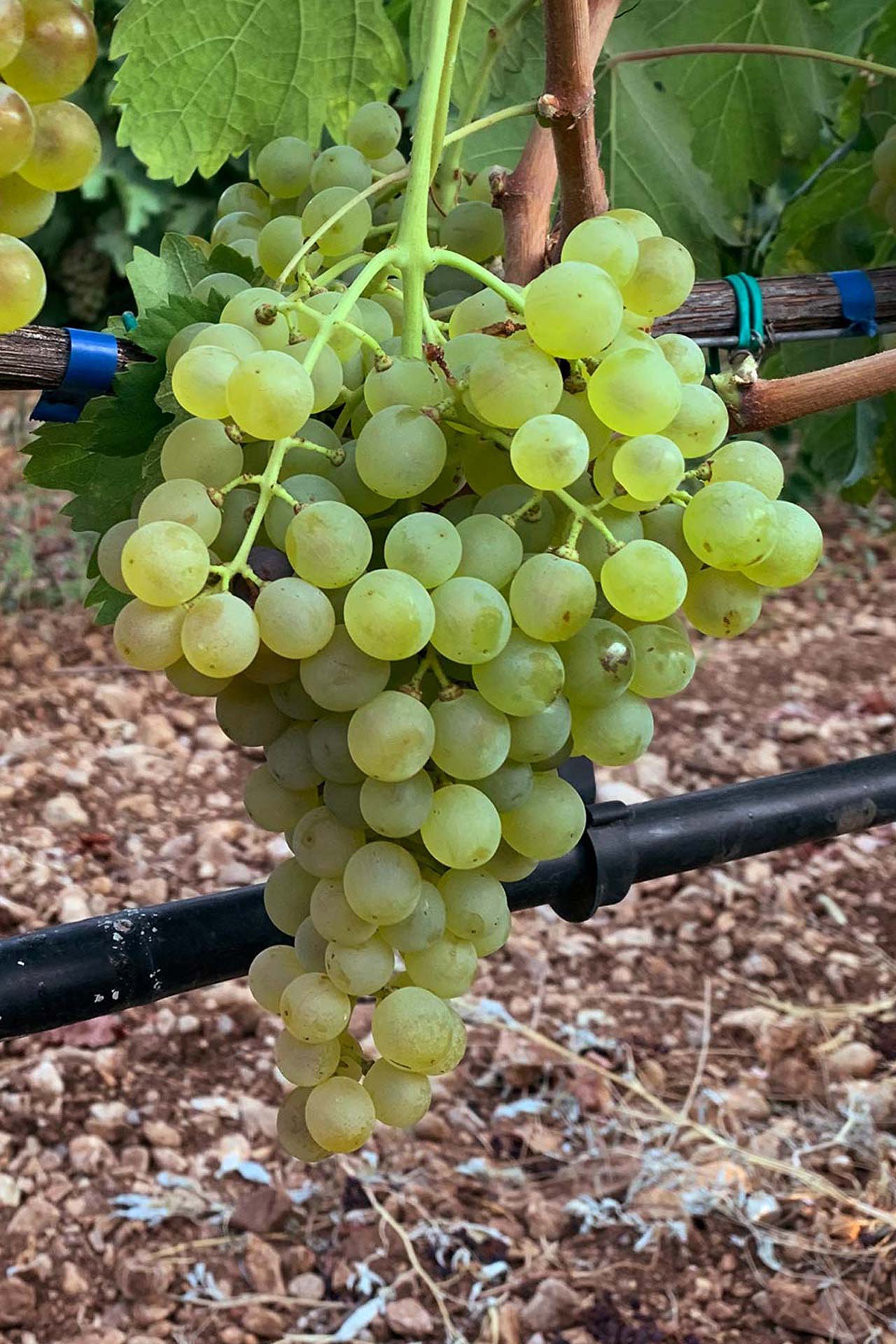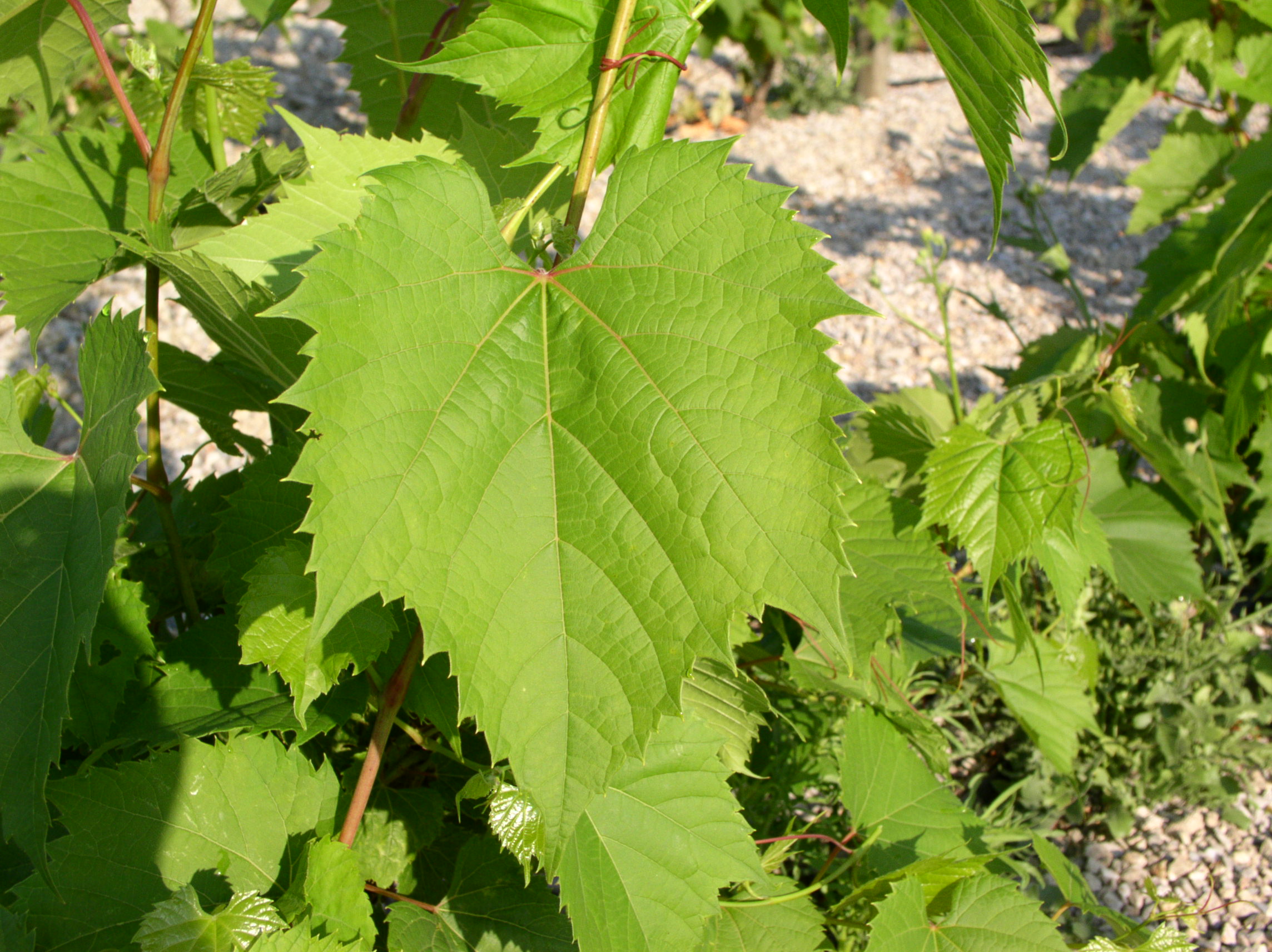
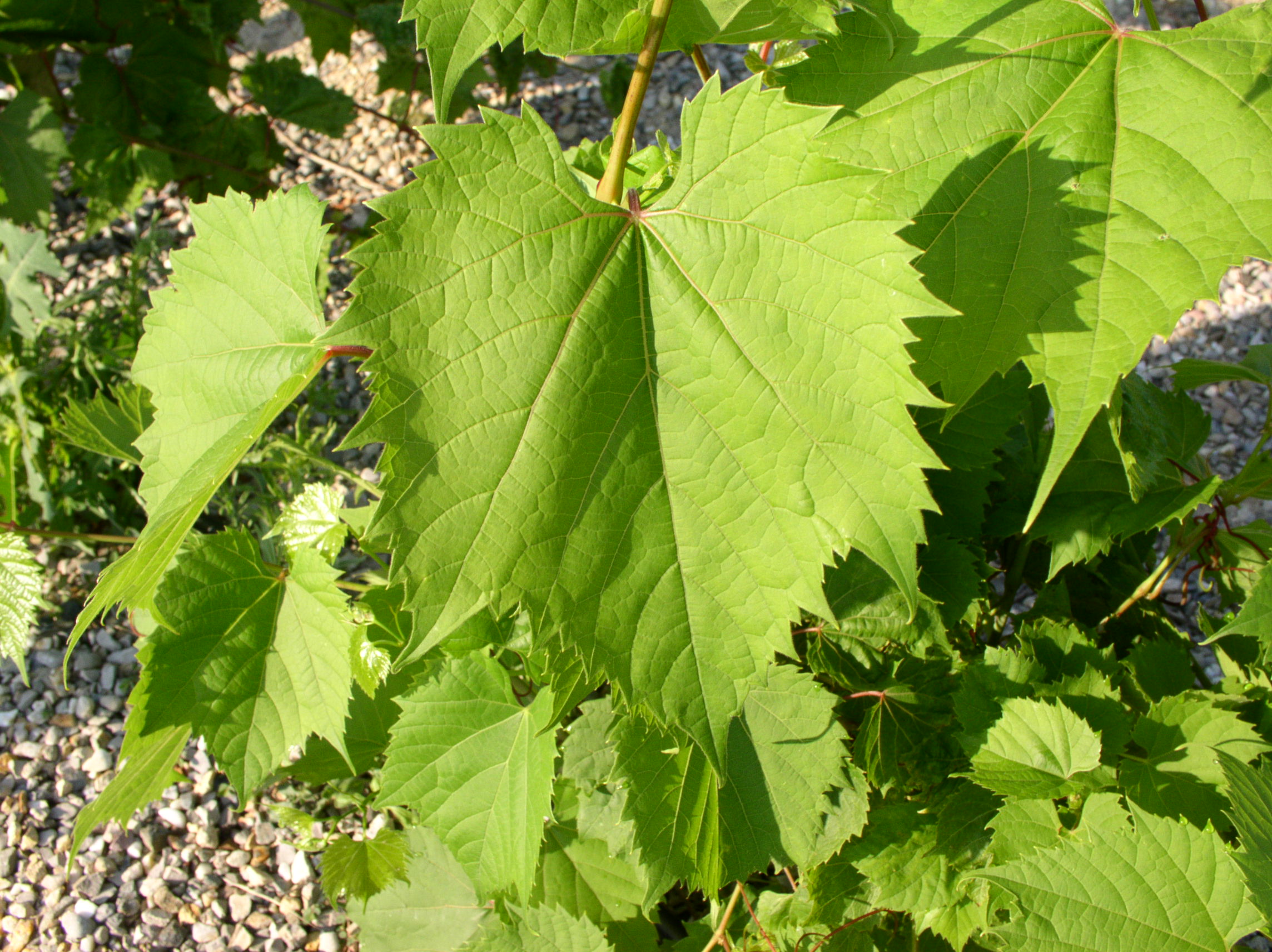
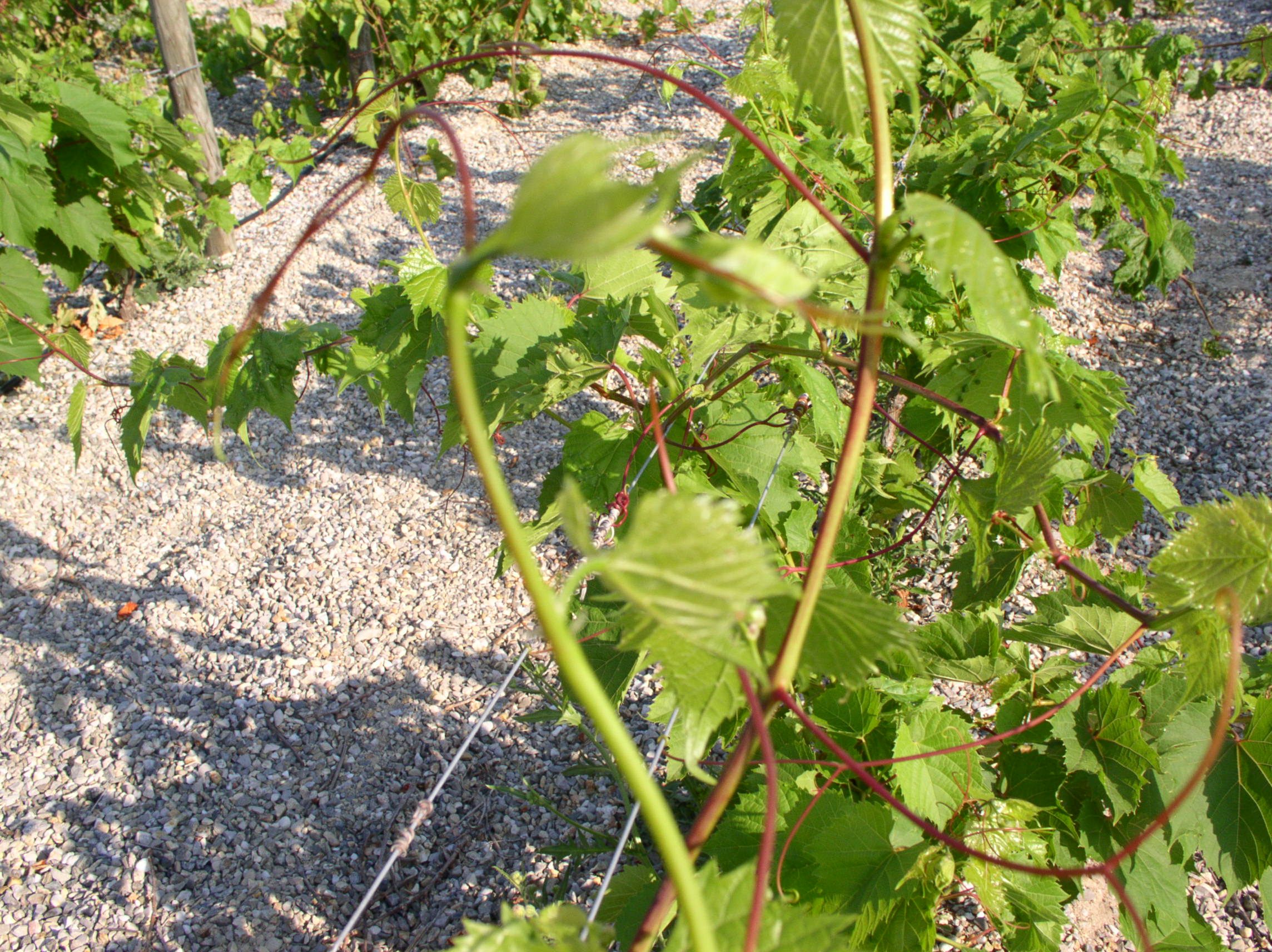
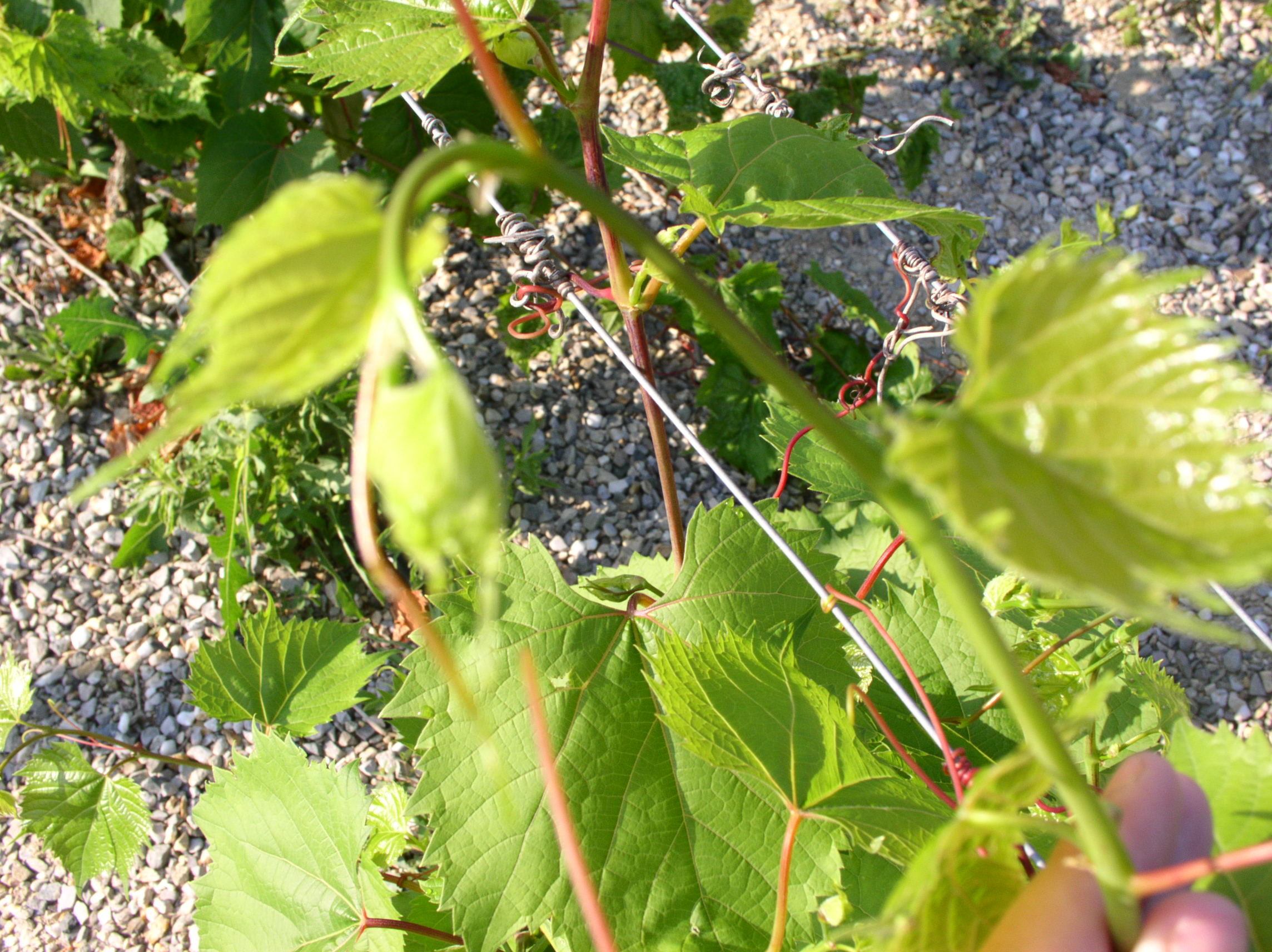
Riparia Gloire de Montpellier
Description
Rootstock deriving from the type of Vitis riparia Michaux.
Today there are 5 different clones of this rootstock: 1, 142, 186, 1030
Resistance to Soil Pests
Riparia Gloire de Montpellier level of tolerance to the root form of phylloxera is very high. It shows high tolerance to the Meloidogyne hapla nematodes and average tolerance to the Meloidogyne incognita and Meloidogyne arenaria nematodes. Finally, it is relatively tolerant to Agrobacterium vitis.
Adaptation
This rootstock is suitable for acidic non-calcareous soils. It is very susceptible to iron chlorosis and tolerates 15% of total calcium, 6% of active calcium and up to 5 CCI. Its ability to adapt to conditions of increased humidity is great, but it is highly susceptible to drought and poorly adapted to clay and cohesive soils. It absorbs soil potassium with great ease while it has difficulty absorbing magnesium, resulting in frequent symptoms of magnesium deficiency and back drying. It is recommended to use it on fertile, gravelly soils and in conditions that allow a satisfactory supply of water. Its use is contraindicated in very poor, dry and surface soils.
Interaction with the implant and production targets
The diameter of the Riparia Gloire de Montpellier trunk is limited and as a result there are often large discrepancies between the rootstock diameter and the graft. The growth of young plants with this rootstock is satisfactory while the robustness it transfers to the graft is low. Riparia Gloire de Montpellier quickly enters in full yield but, given its low robustness, produces low yields per hectare.
Specific multiplication properties
Its production in wood is satisfactory (40,000-80,000 meters / hectare). It has large internodes, clematis/tinges with a medium-size diameter and has a good rooting and grafting capacity.
Parasite Resiliance
Riparia Gloire de Montpellier shows average tolerance to the foliar form of phylloxera and high tolerance to downy mildew.




